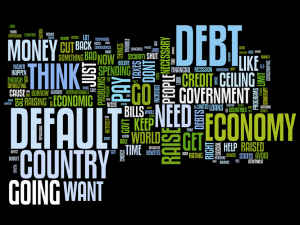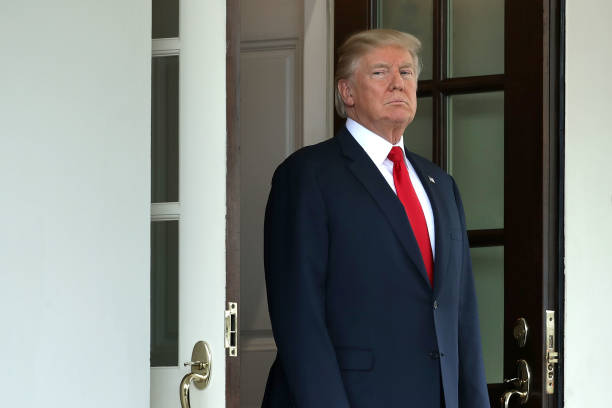(ThyBlackMan.com) Here’s how the latest episode of the debt ceiling drama will end: Congress will raise or suspend the country’s borrowing limit, probably for as much as a year.
The debt ceiling problem is something that must be solved, and solved soon. People in and out of Congress need to realize that what to do about the government and its debt ceiling is one of the most important decisions of our time. Treasury Secretary Jack Lew has warned that the nation’s borrowing authority must be extended or the United States will risk defaulting on some of its obligations in March. In 2013, federal spending approached $3.5 trillion. Following four years of trillion-dollar deficits, the national debt will soon reach $17 trillion and exceed 100 percent of gross domestic product (GDP) by the end of the year.
Nine times out of 10, Black Americans support President Obama and the Black Caucus and their government spending agenda. Over past decades African Americans have developed an unhealthy dependency on government. Blacks suffered disproportionately during the government shutdown in the fall. Blacks have high numbers in the ranks and the rolls of the federal government. In polls conducted by NBC and the Wall Street Journal news organizations, 58 percent of Americans preferred President Obama’s approach to the debt ceiling than the 36 percent who preferred the Republicans approach.
shutdown in the fall. Blacks have high numbers in the ranks and the rolls of the federal government. In polls conducted by NBC and the Wall Street Journal news organizations, 58 percent of Americans preferred President Obama’s approach to the debt ceiling than the 36 percent who preferred the Republicans approach.
Blacks support the “status quo” regarding government spending. A majority of Blacks rely on government in one form or another. Blacks have bought into patterns of spending and mismanagement that must be curbed. Professional politicians have Blacks believing that “failing to increase the debt limit would have catastrophic economic consequences” and cause the government to default on its legal obligations – an unprecedented event in American history that would precipitate a financial crisis and threaten the jobs and savings of everyday Americans.”
Blacks must be prepared to “pull the plug” on the government’s spending. An unhealthy dependency on government has resulted in many Blacks’ acceptance of “a status quo” of low aspirations and generations of addition to welfare. The decline in federal workers and jobs is hurting the fragile Black middle class.
Our reliance on the “status quo” results in Blacks putting all their eggs in the hands of professional politicians. The U.S. Congress originally created the debt ceiling in 1917 during World War I in an effort to limit federal borrowing. Since 1960, Congress has set a bad precedent and acted 78 separate times to permanently raise, temporarily extend, or revise the definition of the debt limit – 49 times under Republican presidents and 29 times under Democratic presidents.
As the issue faces Congressional action, will Black voters ever see the necessity of demanding efficiently managed government and balanced budgets? The public’s goal should be to bring about government administrations that operate effectively and responsibly.
Blacks must realize that the U.S. government is not “omnipotent” and must be staffed to operate effectively and properly. You can’t continue to raise the debt ceiling. The debt limit is the total amount of money the government is authorized to borrow to meet its existing legal obligations, including Social Security and Medicare benefits, military salaries, interest on the national debt, tax refunds, and other payments. As part of the deal to end the October 2013 government shutdown, the debt ceiling was suspended through February 7, 2014. These days, the national debt exceeds $17 trillion. If we don’t change course, today’s debt is expected to exceed $25 trillion in 2023. How many see that: increasing the debt ceiling without equal or greater spending cuts or reforms is foolish?
The process is simple. Government borrows money by selling Treasury Bonds. The Treasury uses the money it makes from selling those bonds to pay off existing debt and to borrow additional money. We’ve never reached the point of default where Treasury was unable to pay its obligations. In 2011 the U.S. reached a point that resulted in the first downgrade in the U.S. credit rating, a stock market drop and increased borrowing costs.
Written By William Reed
Mr. Reed William Reed is available for speaking/seminar projects via; BaileyGroup.org.















Definitely agree, it’s a People’s issue which is why the one percent hasn’t expanded……..
@Dcarter910…. Funny little rant… rehashed talking tidbits.
Black people don’t care? How about average citizens, by the way the majority aren’t aware. Doesn’t matter about race, its an economic issue, monetary, fiscal. You address a social problem, not the topic of the debate.
Besides the comment about black women and placing race into this topic, its a good rant. Sticking to the topic, the debt ceiling isn’t anything major just a DOG N PONY SHOW. No more or less. Meh
Doomsday..yea right its like too too many people who don
Black people don’t care about these issues. Most feel like this is beyond their understanding and thus let the smart, corrupt A-holes in DC worry about it. But the next market down turn (ie 2008) there will be no government money to save the country and all these government dependent idiots will wake up with empty banking accounts, empty shelves at the grocery store and empty gas stations with the national guard sholving a rifle in their face to establish marshall law. Let’s talk about something more important to black people like “why do black men prefer (insert here) over black women?”. Or “how do we save up to send our kids to college after they went to the worst K-12 schools in the country?, maybe we should send them to a historically mediocre college like a HBCU?”. That’s the real issues black people want to discuss. Not life ending, future-destroying issues like the pending collapse of our economy, government, ability to eat and live.